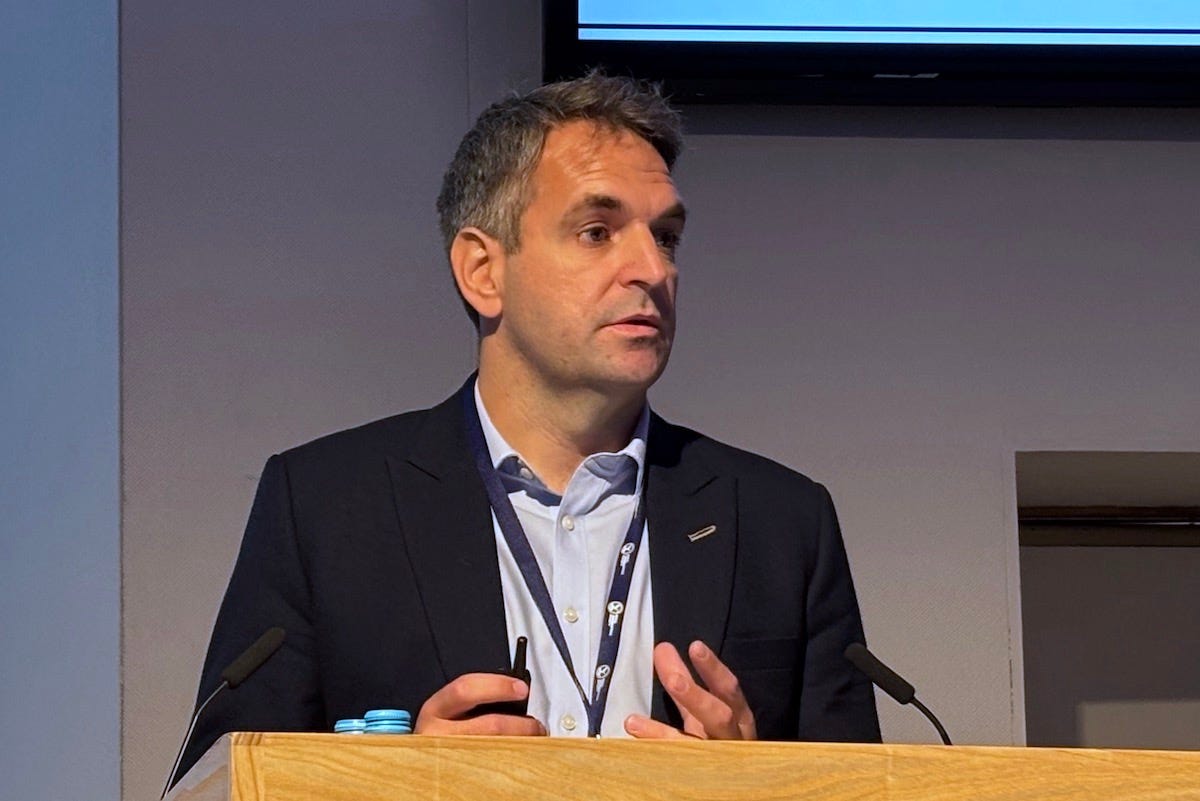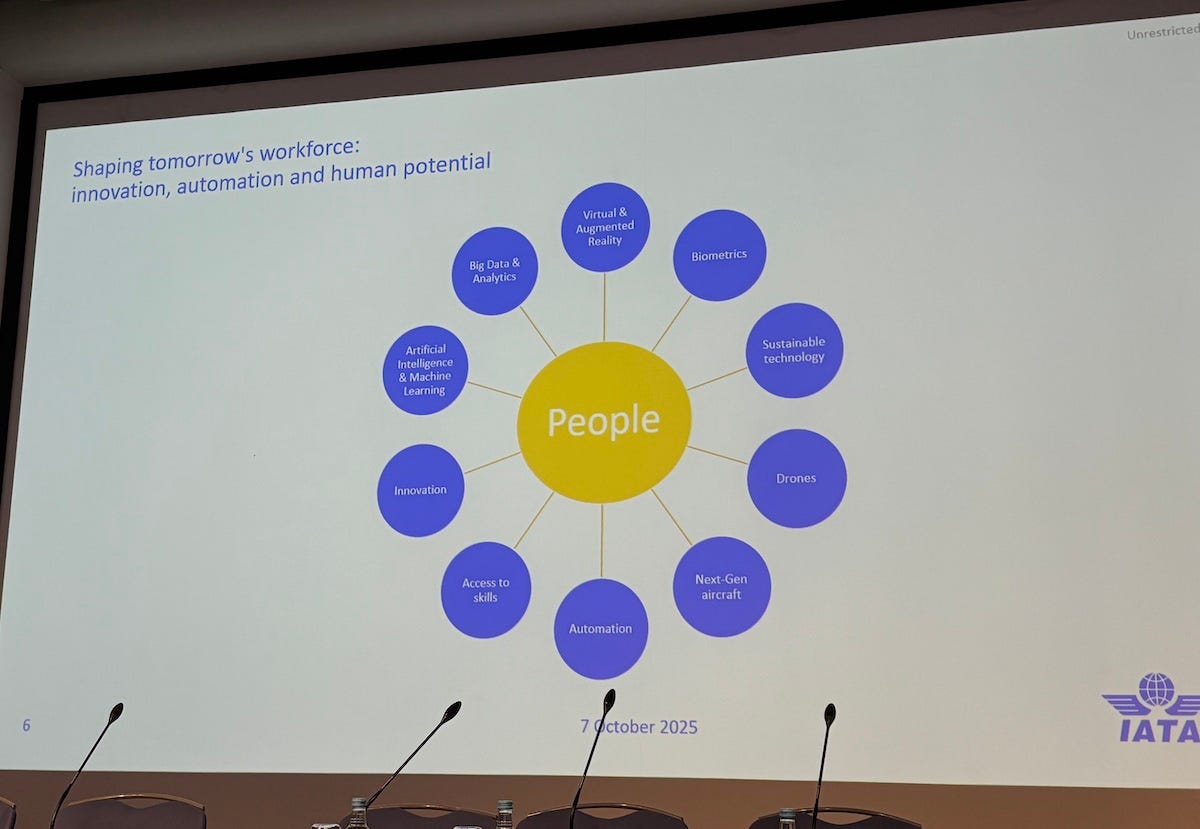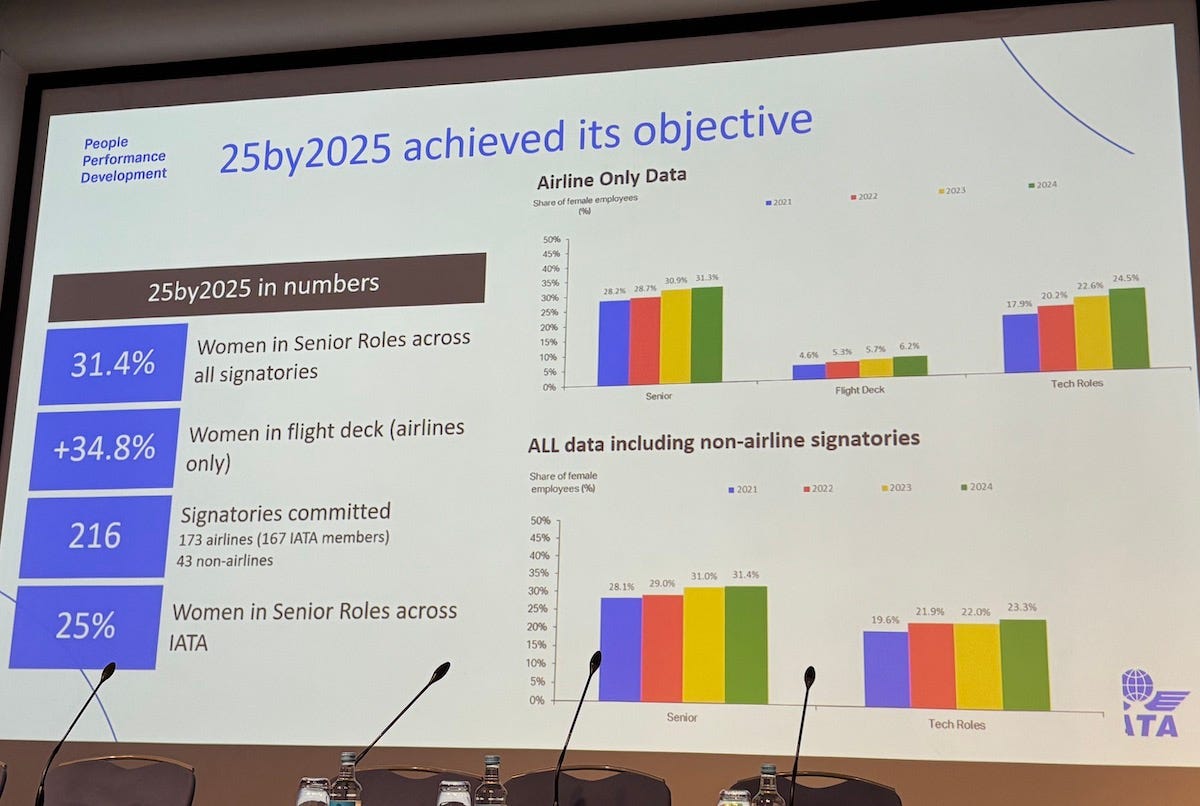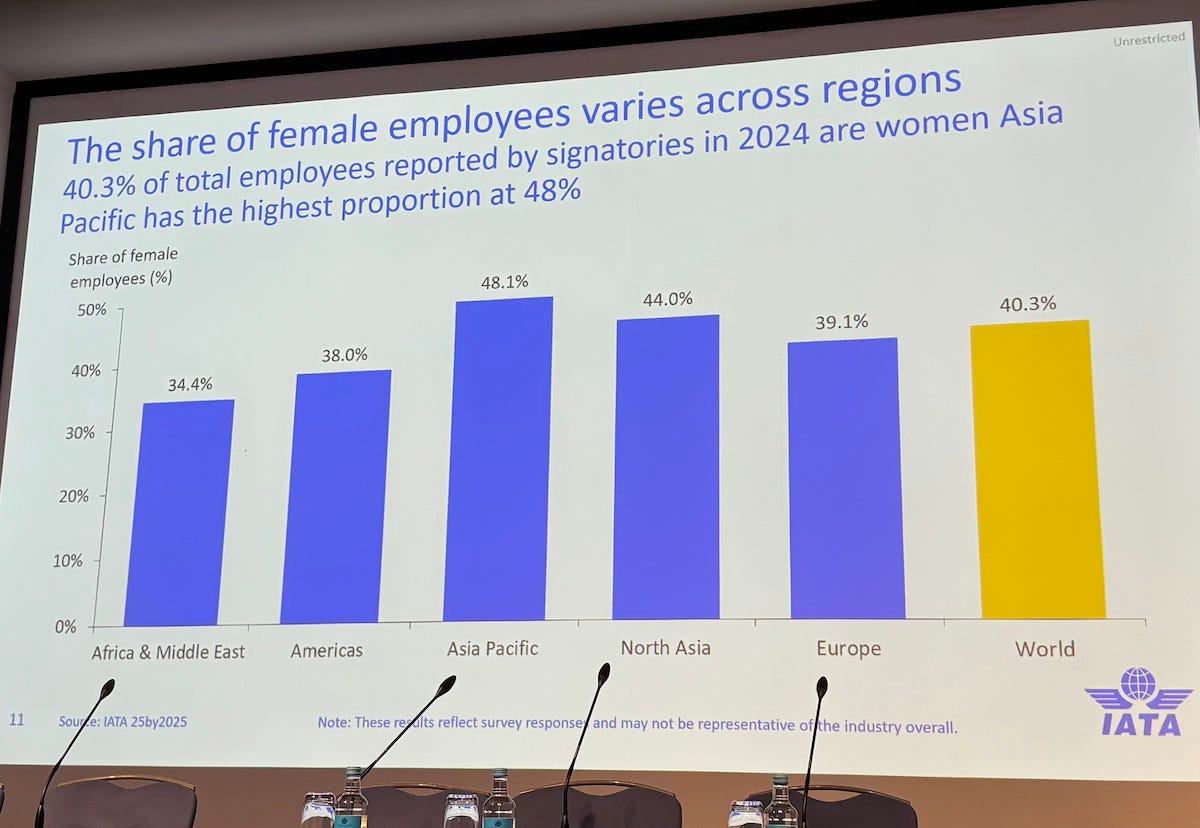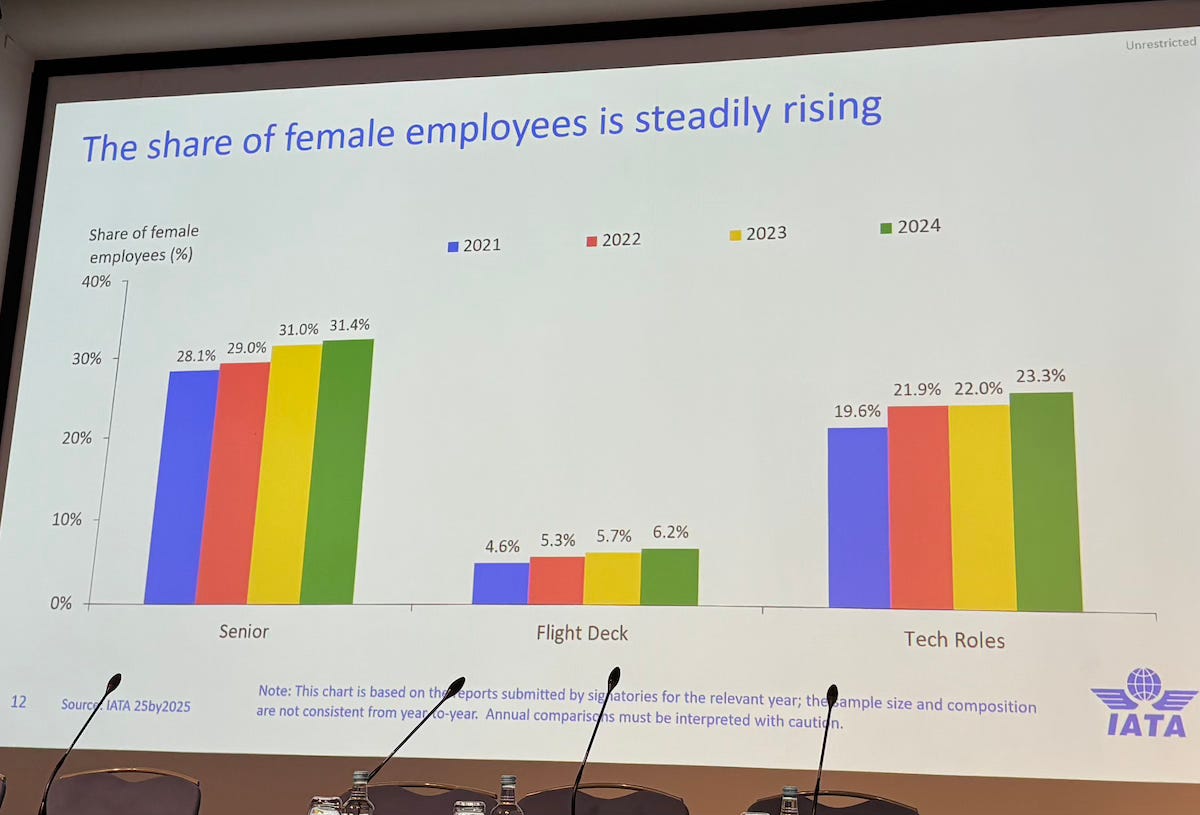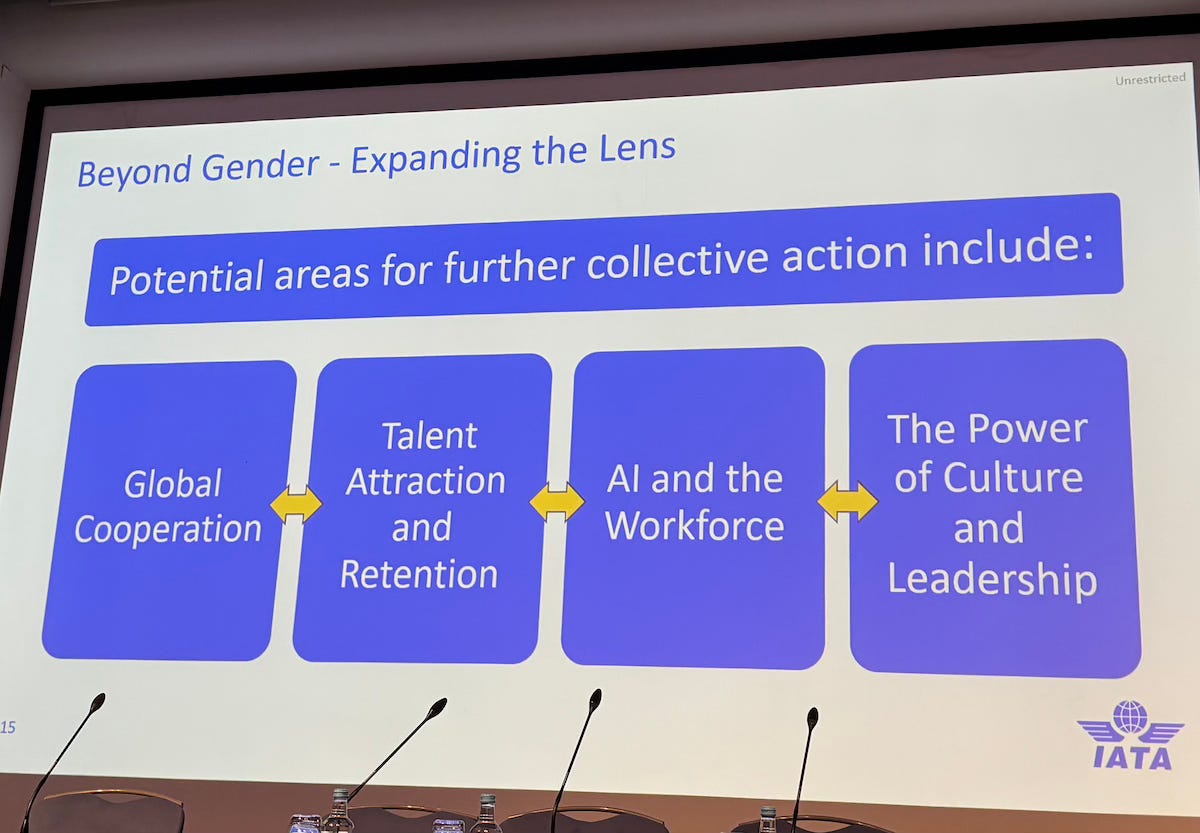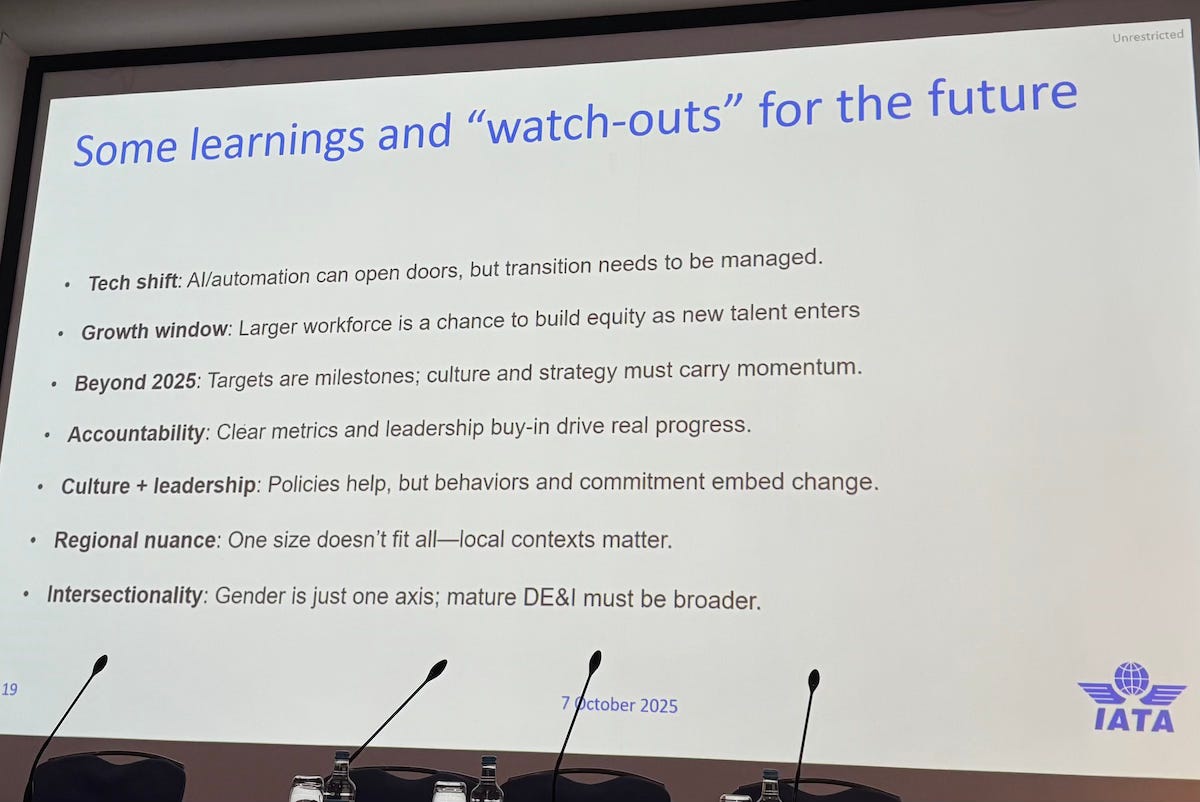IATA highlights skills and diversity as aviation prepares for an AI-driven future
The global airline association outlines how automation, sustainability, and inclusion will shape aviation’s next-generation workforce
The International Air Transport Association (IATA) has placed workforce transformation at the centre of its long-term plan to 2050, positioning people, technology, and inclusion as the key pillars of a sustainable aviation industry.
The roadmap underscores that meeting global travel demand will depend as much on technological progress as on human adaptability and diversity across the aviation workforce.
The strategy was presented by Peter O’Broin, Government Affairs Manager for the UK and Ireland at IATA, during the Royal Aeronautical Society’s President’s Conference in London on October 7, 2025.
He delivered a presentation titled “Shaping Tomorrow’s Workforce: Innovation, Automation and Human Potential,” describing skills development as one of the most pressing challenges the aviation industry faces in preparing for the coming decades.
“I’m really pleased to be here today talking about skills, because this is one of the key issues that we are dealing with now and are going to be dealing with over the next 30 years to 2050,” O’Broin said.
“Our forecasts see a doubling of passengers globally over the next 20 years, much of that in Asia. With that growth, we will need more people. By the early 2040s, there will be a need for another 2.5 million aviation workers.”
Transformation in aviation begins with people. Talent attraction, retention, and development must evolve in tandem with technology. The industry’s long-term competitiveness will depend on adaptability, safety culture, and inclusive leadership that nurtures innovation and sustainability.
Launched in 2019, IATA’s 25by2025 initiative is the association’s cornerstone for improving gender balance. It sets two pathways for participants: a growth goal to increase female representation by 25%, or a level goal to reach a minimum of 25% by 2025. The programme makes diversity measurable, actionable and transparent across airlines and partner organisations.
IATA grants the Diversity & Inclusion Awards, recognising individuals and teams advancing equality within aviation. The categories—Inspirational Role Model, High‑Flyer, and Diversity & Inclusion Team—highlight best practices and promote a culture of inclusion throughout the sector.
Progress under 25by2025 shows tangible results:
216 organisations joined, including 173 airlines and 43 non‑airline partners
31.4% of senior roles are now held by women, compared with 28% in 2021
+37% increase in women pilots since 2021, reaching 6% of flight deck positions
+24% growth in women in senior roles since 2021
Female representation in technology roles has risen to 24–25% by 2024
Within IATA, women now hold 25% of senior positions
Participation is truly global:
Europe: 44%
Americas: 23%
Asia‑Pacific: 15%
Africa–Middle East: 11%
North Asia: 7%
This broad engagement shows that gender balance and inclusion are now recognised as global industry priorities.
25by2025 is producing visible change. The number of women on flight decks has increased by more than a third since 2021, reaching 6%, while women in senior roles now comprise 31% of the total. Within IATA, one in four senior leaders is a woman.
O’Broin observed that these results confirm how clear, measurable goals can drive genuine cultural transformation. He remarked that the initiative is building momentum not just within airlines but across the broader aviation community, creating new role models and proving that inclusion can be a catalyst for innovation and long-term resilience.
Data‑driven workforce planning is now central to IATA’s strategy. Analytics forecast demographic trends, skill demands, and regional gaps—helping airlines anticipate shortages, align training with demand, and invest in proactive reskilling.
Continuous learning is essential to aviation’s agility. IATA’s global training network reaches over 100,000 professionals annually, offering modules on digital operations, predictive maintenance, and environmental management. Partnerships with universities and training centers ensure that education programs reflect sustainability, data science, and regulatory literacy.
Adapting to rapid technological change
Generative AI is emerging as one of the most transformative and rapidly developing technologies in the aviation industry. It is reshaping knowledge work across operations, training, and customer engagement, demanding quicker governance and adaptive skill development.
O’Broin described GenAI as an extraordinary technological shift, noting that its rapid pace will redefine how aviation integrates automation into its decision-making processes.
He emphasised that IATA views the technology as an augmentation of human capability rather than a replacement, insisting that ethical safeguards and human oversight must remain in place. Upskilling, he added, will be essential to ensure aviation professionals keep pace with this accelerating change.
IATA’s vision for 2050 foresees a workforce defined by innovation, inclusion, and lifelong learning. Long‑term success will depend on sustained investment in people, sustainability, and digital excellence. Workforce transformation is not a temporary objective but the foundation for aviation’s continued growth and resilience in the decades ahead.



